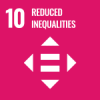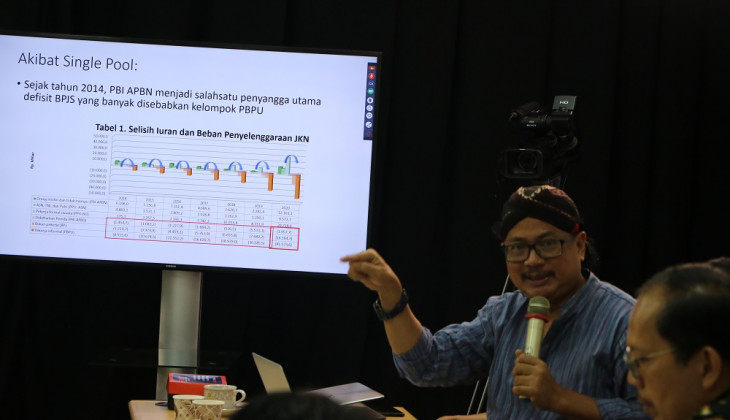The Supreme Court (MA) granted a judicial review of Presidential Regulation Number 75 of 2019 regarding Health Insurance by cancelling the increase in BPJS contributions as of January 1, 2020.
Head of the Center for Health Policy and Management, Faculty of Medicine, Public Health, and Nursing (PKMK FKKMK) UGM, Prof. dr. Laksono Trisnantoro, M.Sc., Ph.D., said that the cancellation of the BPJS premium rate increase caused losses for the poor. This is because so far, the funds for the Contribution Assistance Recipient (PBI) from the APBN which should have been used for the poor and underprivileged have been used to cover the deficit caused by the relatively well-off society.
“If the PBI APBN funds are still used to cover the deficit, especially those caused by the PBPU and compensation policy, it will be most detrimental for the poor,” he explained on Thursday (12/3) in a discussion entitled “Will the BPJS Contribution Increase be Cancelled by the Supreme Court be Able to Apply the Principles of Social Justice in JKN or the Opposite?” at UGM FKKMK.
According to him, currently there has been a populist freedom system. One group of people benefited greatly from the JKN policy, while another group was disadvantaged, namely the PBI APBN. Not only that, the current policy with a single pool system, does not reflect social justice for all people. The fiscal capacity of the central government also finds it difficult to support the JKN policy.
“We as good citizens obey the Supreme Court’s decision. However, we continue to strive to restore it in accordance with Pancasila and the 1945 Constitution so that the revision of the SJSN Law and the BPJS Law is necessary,” said the Professor of FKKMK UGM.
Laksono said that what has happened so far in the preparation of the SJSN Law has changed 58 times. From 2005 to 2019, many people filed a lawsuit for judicial review of the SJSN Law and the BPJS Law to the Constitutional Court and there were 7 decisions on the SJSN Law and 7 decisions on the BPJS Law. This shows that the legal umbrella in implementing JKN contains various shortcomings.
“So far, ideological debates related to the philosophy of social justice for all Indonesians and the government’s fiscal burden to pay for the JKN benefit package have never been included in the agenda of revising the SJSN Law and the BPJS Law,” he explained.
Therefore, PKMK FKKMK UGM submitted a number of proposals in response to these conditions. One of them is the BPJS that focuses on managing the PBI APBN funds for the poor and underprivileged in accordance with the 1945 Constitution with standard services. In addition, it is also necessary to develop a health insurance system outside the BPJS to handle well-off people.
The next suggestion is that people who can afford it are expected to pay health insurance premiums according to their ability to pay, not their wishes. If they are not able, then they can be put in the PBI APBN or PBI APBD. Then, the PBI APBD needs to be analysed per region and returned to the respective regional governments with national regulations including inter-regional portability arrangements
“Let us fight for a more socially-just JKN,” he said.
The discussion also presented a number of sources, such as the Secretary General of the Yogyakarta Labor Alliance, Kirnadi, and an activist from the Social Movement Institute, Eko Prasetyo. The event was attended by many participants from students, lecturers, researchers, trade unions, and the general public.
Source: https://ugm.ac.id/id/berita/19131-pkmk-fkkmk-ugm-dorong-revisi-uu-sjsn-dan-uu-bpjs



